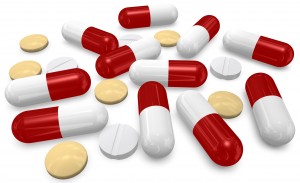 Public concerns have come to the forefront regarding the composition of certain medications containing animal ingredients, in particular porcine and geletine.
Public concerns have come to the forefront regarding the composition of certain medications containing animal ingredients, in particular porcine and geletine.
The recently offered flu vaccination spray for children clearly stated the inclusion of porcine and gave parents the chance to make an informed decision.
However, many people may not be aware that another commonly administered injection -‘Deltaparin’ or Heperin, an anticoagulant (blood thinner) that prevents the formation of blood clots and is often administered to patients likely to be mostly in bed – also contains porcine. What is even less known is that an alternative without porcine does exist and can be requested by the patient.
Even more alarming is a study in the British Medical Journal which highlights many patients and doctors are unaware that commonly prescribed drugs contain animal products, and found identifying which animal the ingredient was sourced from is difficult to find even after contacting the manufacturers.
The survey ‘Suitability of common drugs for patients who avoid animal products’ researched by Kate Tatham and Kinesh Patel, researchers at St Mark’s Hospital in Harrow, found they struggled to receive clear definition of the suitability of products form manufacturers.
The study states, “Information about animal derived products in medicines is difficult to obtain, unclear, inconsistently reported, and sometimes incorrect.
“We found that it was difficult to determine the suitability of common drugs for patients with specific dietary preferences.
“Furthermore, suitability varied between different formulations of the same product. Although the presence of lactose was declared on 90% of exterior packaging, this was the case for only 19% of medications containing gelatine, and the presence or absence of animal derived products was never disclosed.”
The Study
The study investigated 100 of the most commonly prescribed drugs in primary care in January 2013. From these 74 contained one or more of lactose, gelatine, or magnesium stearate, ingredients which would not be suitable for a vegetarian or in some cases a halal diet.
Lactose is derived from cows’ milk and traditionally extracted using bovine rennet. Some manufacturers, however, use a vegetarian processes to extract lactose from milk.
Gelatine is widely used to encapsulate medications and is sourced from bovine or porcine skin, hide, or bone and occasionally fish.
Magnesium stearate is a lubricant used in tablet processing and improves the solubility of medications. It was historically sourced from the rendered fat of cows, pigs, and sheep, but can also be produced from vegetable matter.
The problem the study found, however, is finding out what animal the ingredient has been taken from or if it is a vegetable alternative.
Lactose was found in 59 of the medications. In 21 per cent of these the accompanying report did not specifically declare that the medication contained a material of animal origin. Eight of the products declared the use of calf rennet. The study authors contacted manufacturers of the 10 most commonly used medications containing lactose but only received a response from five.
Magnesium stearate was found in 49 of the top 100 medications, with the animal form declared in four products and the vegetarian form confirmed in 31. Fourteen products had no information on provenance.
The report states gelatine was used in 20 drugs, however, two of the product assessment reports wrongly stated that there was no animal content and seven did not mention animal content at all. Of the remaining11 that stated the presence of ingredients of animal origin, eight did not identify the animal used, one listed porcine origin, one bovine origin, and one both porcine and bovine origin.
Although food labeling has been around for decades the same is not available for medication, this is something the study suggest should be brought in.
“Improvement in drug labelling, mirroring those standards advised for food where manufacturers voluntarily use the Vegetarian Society’s seedling symbol, would help inform prescribers, dispensers, and patients.” The study said adding, “However, manufacturers in the EU are currently prohibited from making statements in product information leaflets about suitability for vegetarians or vegans as these are deemed to be ‘lifestyle choices.’ A change to this rule to permit a simple statement about animal content in medications would be easy to implement and improve clarity and patient choice.”
The study concluded saying lactose is already produced by some manufacturers without using rennet and magnesium stearate can be made chemically without animal ingredients. Although an increase in cost would initially be felt, a survey showed 40 per cent of patients in an inner city area would prefer drugs without animal derived products, which would result in mass production and, thereby, bring down production costs.
